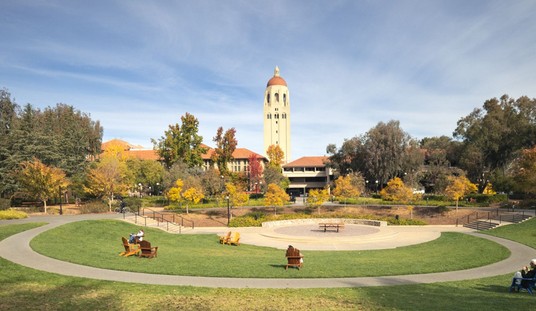Because “financial feasibility” apparently ain’t no thing in the Golden State, California is getting ready to break ground on their much-vaunted, “historic,” “multi-generational” high-speed rail project, which is awesome — because out of the current (notice the added emphasis) price tag of $68 billion, they’re only short $60 billion with few concrete plans on how to obtain that money other than eventual federal assistance. …The long-term fiscal planning and pragmatic restraint are practically overwhelming me:
California’s landmark high-speed rail line won’t require cash from Congress for at least two years. But at some point, it will.
That’s the message the California High-Speed Rail Authority’s leadership team is sending to Washington about the massive $68 billion project set to break ground this year. …
The $6 billion, 130-mile initial segment in the Central Valley will begin construction this summer, a huge milestone in a decades-long effort to bring the fast trains enjoyed all over the world to the United States. It is an effort with strong backing from the Obama administration to the tune of $3.3 billion, and from California taxpayers, who are pitching in $2.7 billion after a dramatic vote in the state Legislature last summer cemented the project’s future. …
Among the big questions that will hang over Richard, Morales and the entire project for years: Where is the other $60 billion going to come from?
The answer is “we don’t know,” Richard said, emphasizing that step-by-step funding is the only viable path to such a large number. And California is taking precautions to make sure that even the Central Valley segment will be useful immediately for the Amtrak system in the state, an effort to avoid the “train to nowhere” moniker still popular among opponents.
Yes, because as we all know, the entire Amtrak system is holding up just swimmingly. It may very well be one thing to not know where “every penny” of a long-term infrastructure project is going to come from; but it is another matter entirely to have little idea of where you’re going to get $60 billion for a showy, ill-advised project in a state already beleaguered with debt. Perhaps this generally blithe attitude is why California’s outlook for fiscal sustainability isn’t looking too good, whatever Gov. Jerry Brown might say:
California had been floating in debt. Then Brown persuaded voters in November to increase sales and income taxes. Now he releases a budget that, as Brown said at a news conference last week, advances a progressive agenda but does so based on available dollars.
Is California on to something? Is Brown’s formula — a combination of government idealism, tax increases and tough- minded budget choices — the answer for the nation, as well?
As tempting as it might be to buy this story line, the answer is no. In reality, the Brown approach is the latest in a series of “kick the can down the road” budgets that ignore the buildup of debts. It rewards public-employee unions with pay and benefit increases — while shielding them from desperately needed pension reforms — and ignores deep problems within the state’s economy.
And why California just keeps on dropping ranks in terms of business-friendliness:
From small businessmen in San Diego to vintners in Napa Valley, top-earning Californians reeling from a new state income tax are preparing to pack up and bail out. …
“If you have excessive regulations and excessive tax, that’s just not where you want to be,” said Peter Farrell, president of ResMed a medical-device maker in San Diego that employs 600 workers and is considering moving its offices out of state. “California is unfriendly. It’s become an unfriendly business environment.” …
Another San Diego-based company, Fallbrook Technologies, a maker of variable speed transmissions, recently announced it is leaving for Texas.
Nevada tax accountant George Ashley said he’s received more than 100 inquiries from higher-earning Californians about the possible tax advantages and feasibility of relocating to a state with lower taxes.








Join the conversation as a VIP Member